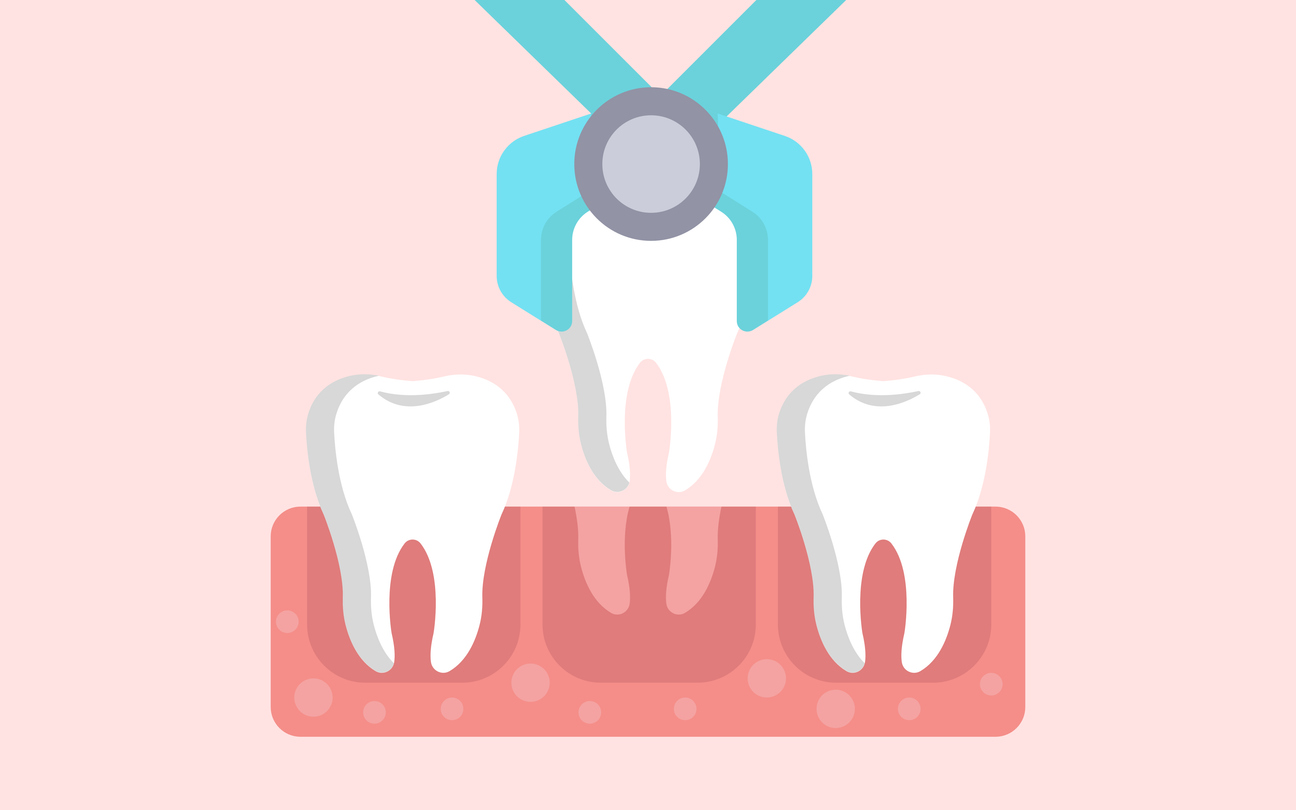In some cases, tooth extraction is needed due to tooth decay or because the tooth causes orthodontics or other oral health issues. In this article, we discuss signs it is time to have your tooth extracted.
Signs It Is Time To Have Your Tooth Extracted
Your dentist might recommend tooth extraction in the following cases.
Severe Tooth Decay
If tooth decay is not treated in time, it can destroy the tooth to such an extent that it is impossible to save it with a root canal treatment or a dental crown.
Severe Tooth Damage
In some cases, a physically damaged (cracked or chipped) tooth can be restored if the more significant part of the tooth and its roots are still intact. Even a knocked-out tooth can be placed back in its socket and will heal in the future. However, if the tooth is broken at the gumline or the roots are damaged, it will most likely have to be extracted.
Overcrowding
Overcrowding is a condition when your teeth do not have enough space in the mouth, which causes alignment issues. This condition can lead to insufficient dental hygiene, followed by tooth decay, bad breath, and gum disease. The issue can be solved with an orthodontic treatment, such as braces. However, to straighten the teeth, there should be sufficient room in the mouth for them to move. Thus, your doctor might recommend tooth extraction in preparation for an orthodontic treatment.
Periodontal Infection
In cases of severe gum disease, the root of a tooth can be damaged, not secure in its socket, and can no longer be treated. The tooth has to be extracted before infection spreads to the surrounding teeth and tissue in the mouth and penetrates the jaw bone, destroying its structure.
Impacted or Wisdom Teeth
In some cases, a wisdom tooth does not fully erupt and remains partially or entirely covered by the gum. This occurrence is called impacted wisdom teeth, a painful condition that can also cause the formation of pockets where plaque and bacteria can linger, leading to tooth decay and gum disease. Since such teeth do not participate in chewing function and cause dental health issues, they are extracted in most cases.
Infected Wisdom Teeth
Due to their location in the mouth, wisdom teeth are often challenging to clean properly. Improper cleaning leads to tartar and bacteria buildup, eventually infecting wisdom teeth. Cavities in wisdom teeth can be treated just like in other teeth. However, if constant proper hygiene is impossible, the infection might reoccur. In these cases, the best course of action is wisdom teeth extraction.
Symptoms of wisdom teeth infection might include:
- Toothache or soreness
- Tooth discoloration or staining
- Sensitivity to changes in the temperature of food and drinks
- Red, swollen, or bleeding gums around the tooth
- Bad breath or taste in the mouth that does not go away after brushing and flossing
- Pain, stiffness, or swelling of the jaw that causes difficulty speaking or chewing
What to Do After an Extraction?
If the tooth extraction was done in preparation for orthodontic treatment to make space for the movement of other teeth, or if your wisdom teeth were removed, you will not need to replace these teeth in most cases. However, if the teeth are removed due to the infection or damage, they most likely leave a gap in your mouth, leading to jawbone density loss, changes in the facial structure, and damage to the surrounding teeth.
One of the most effective methods of dental restoration is dental implants—metal posts that are surgically inserted in the jawbone and act just like the roots of your natural teeth. Dental implants prevent the process called resorption—breaking down of the bone tissue following tooth loss. This natural process is also called jaw bone shrinking. It occurs because the roots of the tooth no longer stimulate the bone. Jawbone density loss leads to changes in the facial structure and to the “sunken” appearance of the face.
Dental implants fuse with the jawbone over time and provide necessary stimulation. This stimulation signals to the body that the bone still performs its function and requires the necessary minerals to support it, stopping bone resorption.
Make an Appointment Today
If you have signs that you need a tooth extraction and plan for further treatment, make an appointment with a restorative and cosmetic dentist in Rialto today. Specialists at Baseline Dental use modern methods and equipment to restore the health and appearance of our patients’ smiles. We are looking forward to welcoming you and your family to our dental office.


